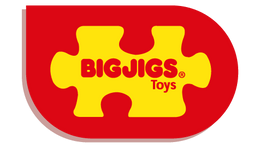
How To Help Your Child Make Friends
Happy friendship day! To mark this year’s International Day of Friendship, we wanted to share some thoughts and ideas for kids who might be finding it difficult to make friends.
How To Make And Keep Friends
Every child is different. Some make friends easily and thrive in settings where there are lots of other children around. Others can find this intimidating and overwhelming, and may need more time to find their tribe! For these kids, there are things we can do to nurture their social development and make finding friends less stressful for them.
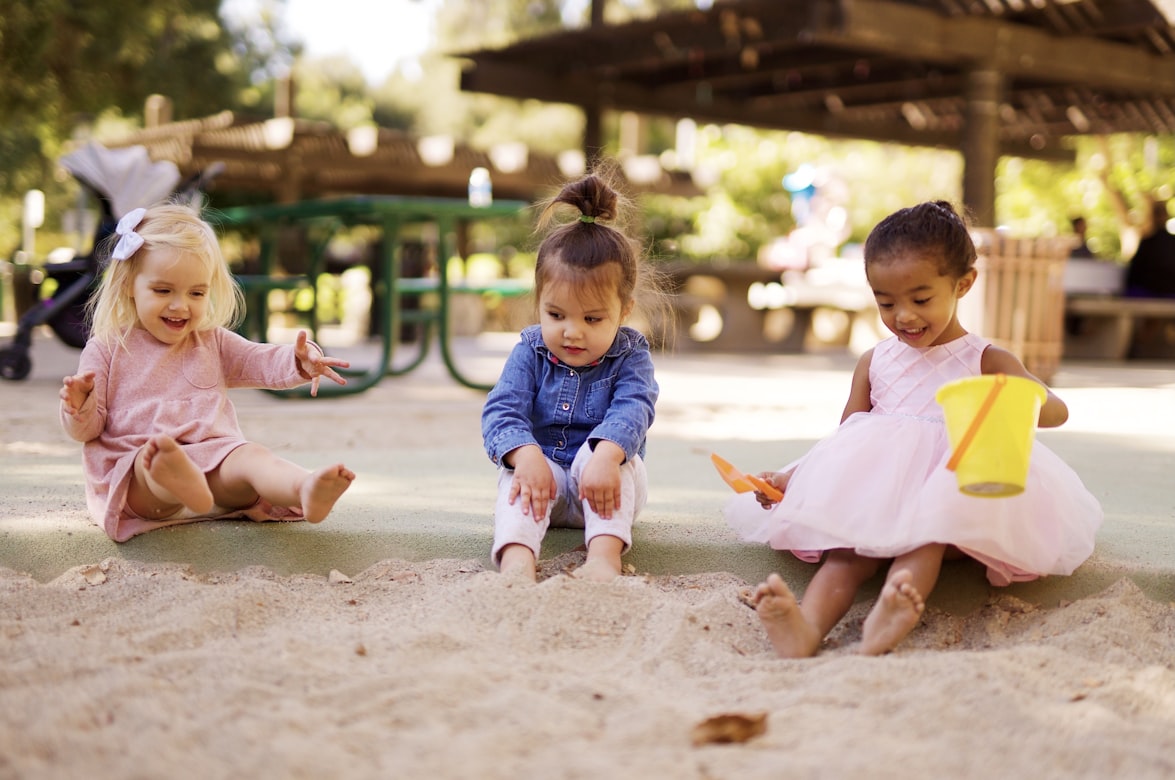
Why is building friendships important?
Making friends is a big part of growing up, and building close friendships with like-minded littlens has the power to boost a child’s happiness, self-esteem, social skills and emotional intelligence. Good friends can give youngsters a sense of belonging, bringing support, comfort (and fun!) to their lives.
At what age do kids start making friends?
By the age of four years old, kids will typically be able to tell the difference between a friend and another child they know, but the road to friendship starts a little way before this…
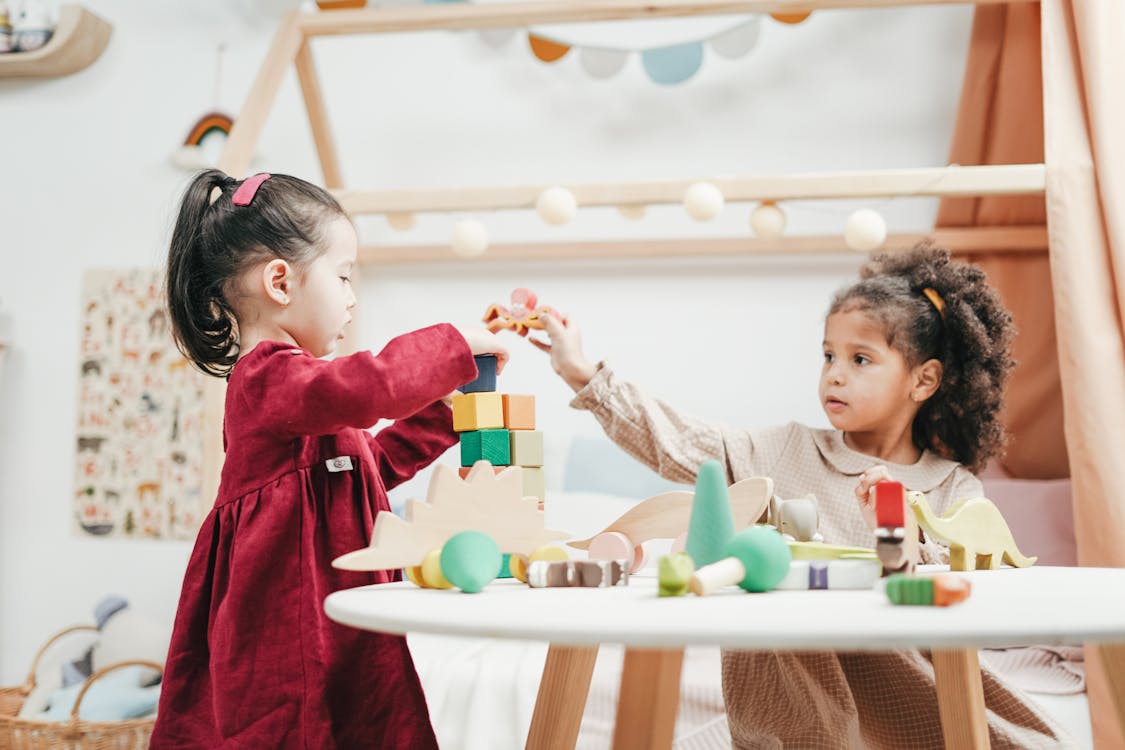
- 18 months - 2 years: Toddlers at this age can usually sit in a group of other children and play with a collection of similar toys.
- 2-3 years: Parallel play moves on at this age and tots are able to play next to each other, but not with each other yet.
- 3-4 years: Kids develop intense interests at around three years old, and they begin to connect with children who enjoy similar toys. Some will be able to name their friends and want to play with them over others, but not all kids will have a clear idea about who their friends are yet.
- 4-5 years: Collaborative play kicks in at this stage and close friendships will start to grow and develop.
How can I help my child to make friends?
1. Use puppets to teach compassion
Emotional support is key to building long-lasting friendships! Help your tot understand their emotions by naming their feelings when they’re sad, cross, happy, frustrated etc., or bring these feelings to life through toys like our Emotional Puppets. Children who understand their own emotions are better able to feel empathy and compassion for other kids feeling these ways.
2. Play Simon Says to practise listening
Play games like Simon Says, the whisper game and musical chairs to demonstrate the importance of listening. You could pair up to tell a story together, taking it in turns to make up the next line - this will motivate your child to listen to you, as they’ll need to follow the narrative to think up their next line. Listening is another fundamental part of friendship, so raising a good listener will do wonders for their social development.
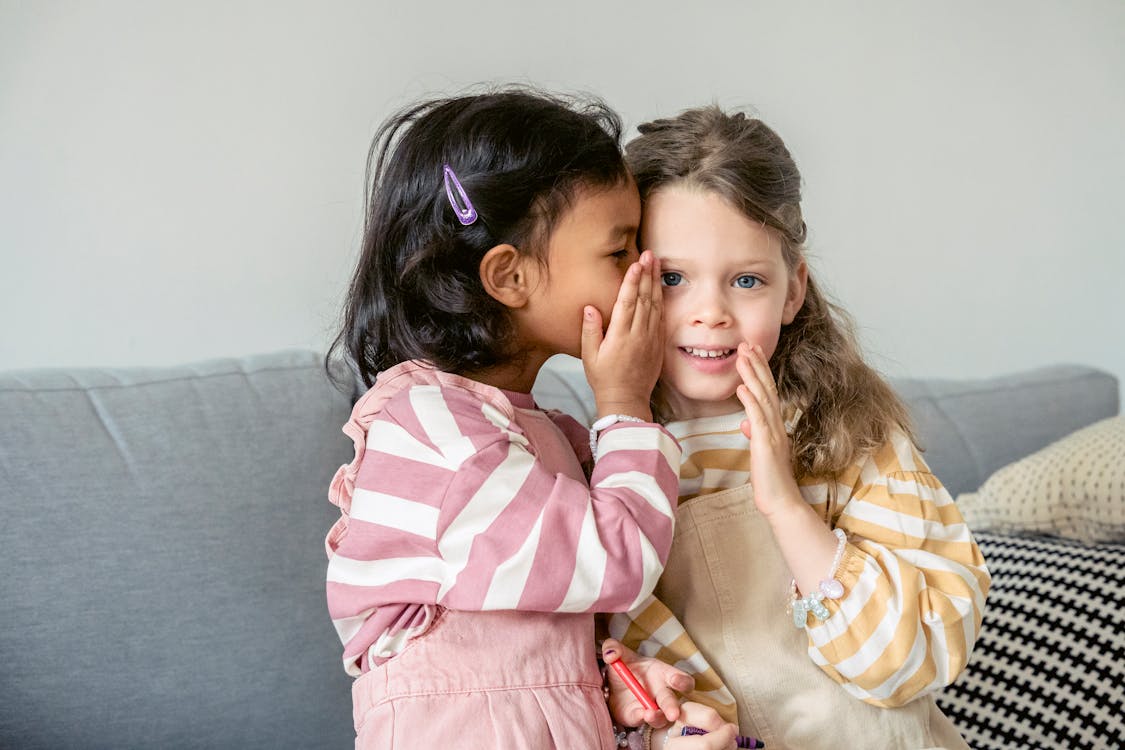
3. Create turn-taking flashcards
- Print off two pictures of yourself, one where you’re pointing outwards and one where you’re pointing at yourself, then do the same with your little one.
- Stick each photo to a small piece of card (so you have four in total).
- Write ‘Your Turn’ on the two cards with the outward point and ‘My Turn’ on the two cards where each of you are pointing at yourself.
- Split them up so you each have a ‘Your Turn’ card with the other person's face on it and a ‘My Turn’ card with your own face on it.
When you’re playing games together, you can have fun holding up the cards each time it changes turn. Visual cues are a more interactive way to teach kids how to take turns and play collaboratively, which should help them to pick up these behaviours more easily.
4. Set up time-limited playdates
Give your child opportunities to play with other kids of the same age. But if they’re struggling with these social occasions, keep them short. Around 60-90 minutes is a wise limit. If they seem unsure or anxious about joining in, give them some ideas about how they could get involved, and stay close to boost their confidence.
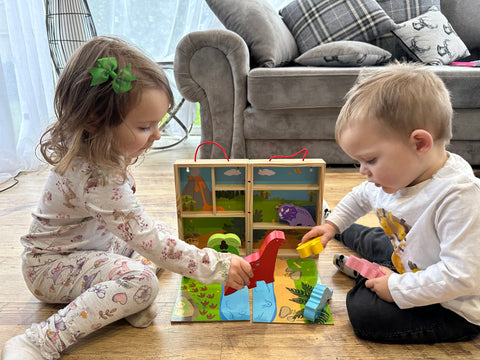
What are the best toys for collaborative play?
Collaborative play is a brilliant way to help your child make friends. The key is to choose toys that encourage teamwork or turn-taking, such as jigsaw puzzles, kids board games, children’s crafts, imaginary play sets, stacking rings, soft dolls and so on. Here are 5 examples of the best toys for collaborative play to give you a better idea.
Wooden Puzzles
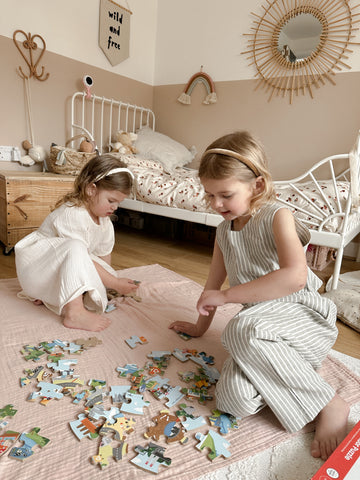
Children’s puzzles are a simple way to help your toddler grasp turn-taking. What’s nice about puzzles is the reward you get once completed, which is great for teaching tots the joys that come from working as a team! In our Wooden Puzzle collection, we have quality jigsaws for all ages and in a range of styles and themes, including peg puzzles, tray puzzles, floor puzzles, lift and match puzzles, cube puzzles, touch and feel puzzles, and more.
Board Games For Kids
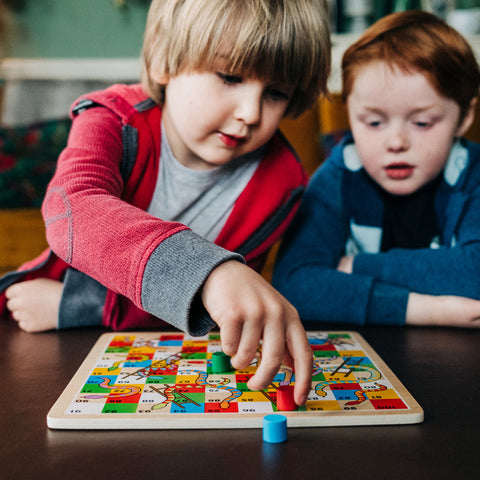
Go head to head in a classic game of Snakes and Ladders, Noughts and Crosses or Codebreaker! You can use this opportunity to teach your child how to win and lose graciously by role modelling healthy reactions. This is a valuable trait for youngsters to have as it will encourage them to show kindness when playing with others, making them a better teammate, friend and all-round human being! Browse some of our best-selling Children’s Board Games to find one they’ll love.
Cardboard Crafts
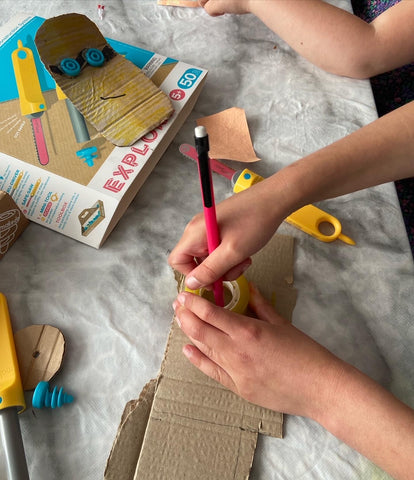
Working side-by-side with other kids to create a cardboard castle, car, house or den is a fantastic way to nurture your child’s social skills. Giving them a focus will take the pressure off having to think of things to talk about or play with, and will motivate them to work as a team to finish their creation. Makedo’s Cardboard Craft Kits and child-safe tools are perfect for these kinds of projects.
Kids Role Play Toys
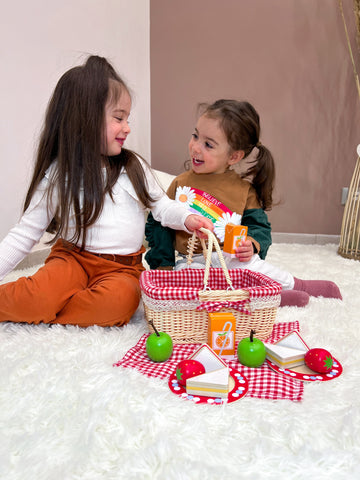
Make-believe play can be very freeing for children who find it hard to make friends, as it gives them a chance to let go of their anxieties and pretend to be someone else for an hour or so. Fake it till you make it, as they say! It also helps to boost their self-confidence and social skills as they think up creative storylines and act them out with their peers. We have an extensive range of Role Play Toys, including dress up sets, play food and kitchen accessories, construction tools, dolls, puppets, hobby horses and animal figures.
Jewellery Making
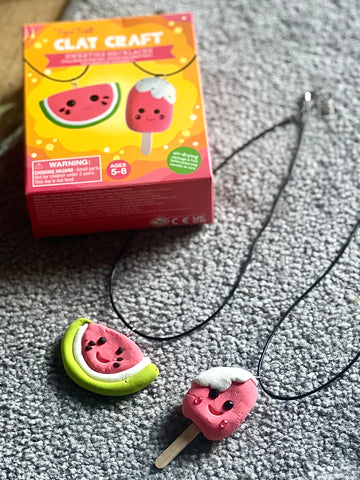
Making friendship necklaces or bracelets is a bonding activity that’s been enjoyed by kids for generations. It’s a fun way to help your child grow their connection with a new friend as they spend time crafting together. Junior jewellery designers will love Tiger Tribe’s Sweeties Necklaces clay craft set. It comes with two necklace cords, six Super Clay colours, 10 embellishment beads, and step-by-step instructions on how to make these cute watermelon and ice lolly necklaces.
